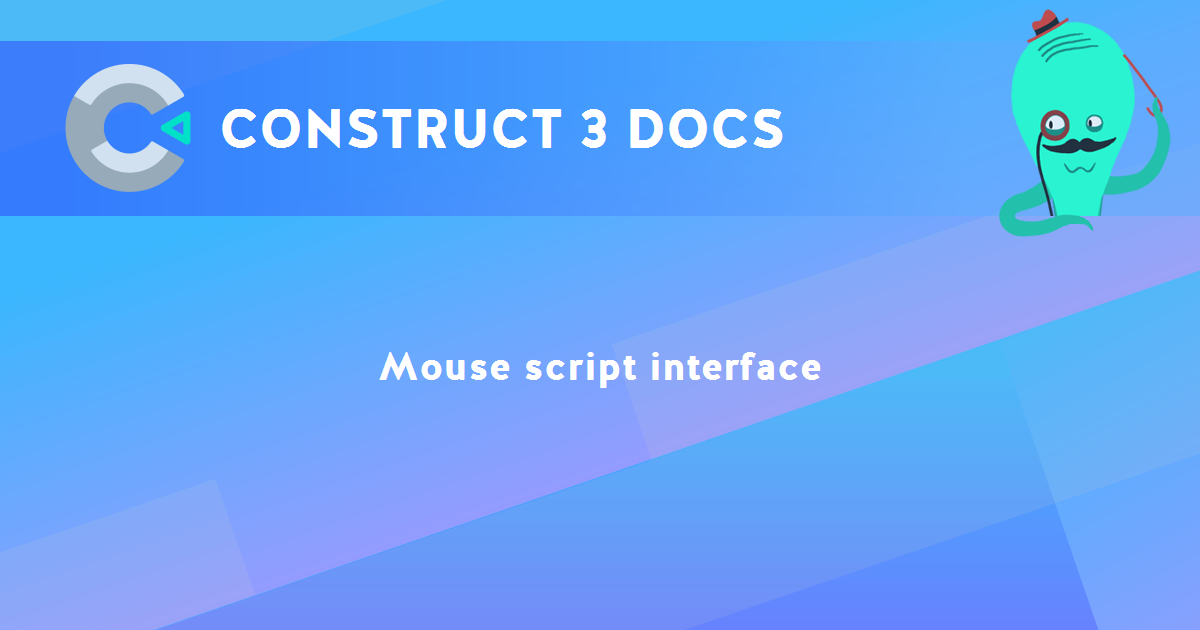Mouse script interface
The IMouseObjectType interface derives from IObjectClass to add APIs specific to the Mouse plugin.
Note this class derives from the object class interface, not the instance interface. Typically it is used through runtime.mouse instead of the named object.
Examples
The Shooting code example demonstrates pointing the player at the mouse cursor and shooting bullets towards it.
The Tracking pointers example also demonstrates how both mouse and touch input can be tracked simultaneously using pointer events.
Events
To detect mouse button events, use the events fired on the Runtime script interface, such as "mousedown" or "pointerdown".
Mouse APIs
- getMouseX(layerNameOrIndex)
- getMouseY(layerNameOrIndex)
- getMousePosition(layerNameOrIndex)
- Return the current position of the mouse cursor on a layer, given by a case-insensitive string of its name or zero-based index. The parameter can be omitted for the default mouse position, which does not take in to account any specific layer's transformations.
getMousePosition() returns both the X and Y position as [x, y].
- isMouseButtonDown(button)
- Return a boolean indicating if the given mouse button is currently down. The button is specified the same way as the MouseEvent.button property, i.e. 0 for left, 1 for middle, and 2 for right.
- setCursorStyle(style)
- Set the appearance of the mouse cursor to a string of a CSS
cursor style value, e.g. "crosshair". See cursor styles on MDN for some possible values.
- setCursorObjectClass(objectClass)
- Set the appearance of the mouse cursor to the current image of an IObjectClass. Various limitations apply: the object image is used as it appears in the image editor, not taking in to account size or rotation in the layout; the image cannot be too large (64x64 is usually the limit); the cursor may not be applied close to the edges of the browser window; and support varies depending on browser and OS. Some sample code for this method is shown below.
runtime.mouse.setCursorObjectClass(runtime.objects.Sprite);
Construct 3 Manual
Construct.net
2019-06-03
2024-02-16

You are here:
Search this manual:
This manual entry was last updated on 16 Feb, 2024 at 14:33